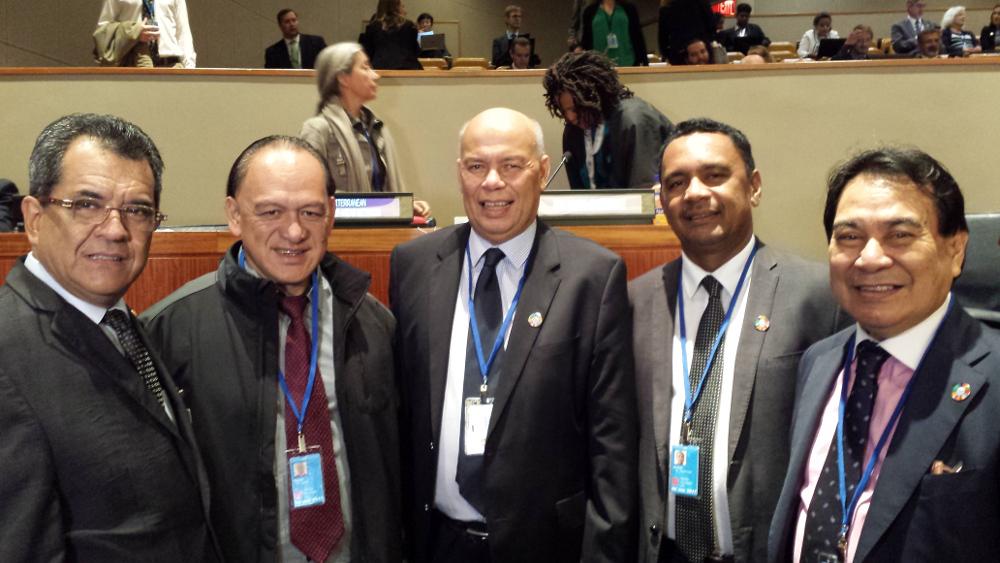The theme for this year’s World Oceans Day is - Our Oceans, Our Future.
Over ninety-eight per cent of the Pacific region is ocean. Marine and coastal ecosystems help to provide Pacific people with food, water, medicines, energy, transport, climate regulation and oxygen production as well as cultural heritage and inspiration.
The management, protection, conservation and restoring of marine and coastal ecosystems are some of the issues being discussed at the UN Oceans Conference in New York this week. Sustainable fisheries practices, ocean in the face of climate change, blue economy are challenges that account prominently in the events.
The Pacific joins the global community at the Oceans Conference to champion and progress Sustainable Development Goal 14: to conserve and sustainably use the oceans, seas, and marine resources.
The Pacific Community (SPC) which celebrates its 70th anniversary this year, delivers technical assistance and scientific support to its 22 PICT members through the application of ecosystem approaches to fisheries management, the promotion of integrated cross sectoral approaches to build resilience, the building of capacities, and the undertaking of valuable scientific and technical research whether in areas of renewable ocean energy or status of ocean and living resources status.
“SPC has been implementing projects that strengthen and sustain integrated coastal management (ICM) as the planning tool to increase the resilience of Pacific ecosystems and societies facing climate change and degradation of coastal and marine environments,” said Pacific Community Director-General, Dr Colin Tukuitonga.
“Our sustainable coastal fisheries rely on Community-based Ecosystem Approaches to Fisheries Management (CEAFM) as per the ‘New Song’ strategy. This plan recognises that while unsustainable fishing is a key factor in the decline of coastal resources, the need to deal with other impacts on coastal ecosystems is evident, and must be managed as effectively as possible,” Dr Tukuitonga said.
“The Pacific is already a world leader in sustainable marine management and is doing more than its share with its vast managed areas and protected sanctuaries. SPC maintains the Pacific Ocean Portal, a user friendly access point for the display of ocean information, maps and providing regional to country level information on sea surface and subsurface temperatures, wave and sea levels“, added Dr Tukuitonga.
The United Nations Oceans Conference is being co-chaired by the governments of Fiji and Sweden and will comprise of plenary meetings and side events. One of the outcomes from the Conference will be adoption of an inter-governmentally agreed "Call for Action" to support the implementation of Sustainable Development Goal 14 – Life Below Water (SDG14), a set of voluntary commitments and several partnerships established.
The Oceans Conference ends on 9 June.
Media contact:
Sandra Kailahi, SPC Director Strategic Communications, [email protected] or+687 546 952
